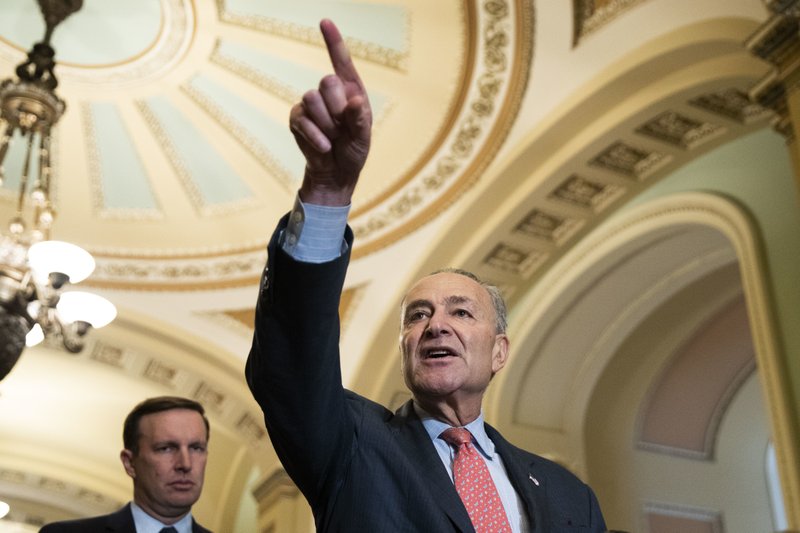WASHINGTON -- Days after ending a turbulent Supreme Court confirmation fight, the Senate turned back to health care -- with a battle squarely aimed at coloring next month's elections for control of Congress.
The Senate on Wednesday rejected a Democratic attempt to stop President Donald Trump from expanding access to short-term health care plans, which offer lower costs but skimpier coverage. It was clear Democrats would lose, and a real victory was never feasible since the measure would have died anyway in the Republican-run House.
But by pushing ahead, Democrats made Republicans cast a health care vote that Democrats could wield in campaign ads for next month's midterm elections, in which they hope to topple the GOP's 51-49 Senate majority. The vote was also aimed at refocusing people away from the Senate's battle over confirming Brett Kavanaugh to the Supreme Court, which both sides say has transformed indifferent conservative voters into motivated ones.
Wednesday's vote was about showing whether Congress will "allow insurance companies to scam Americans with cut-rate health insurance," said Senate Minority Leader Charles Schumer, D-N.Y. "I wouldn't want to be on the wrong side of that vote."
Republican Sen. Cory Gardner of Colorado insisted it was actually the Democrats who had done themselves no favors with the vote.
"Look, if they want to take away people's health insurance and that's what they're campaigning on for the next several weeks, I think it's a losing strategy," said Gardner, who heads the Senate GOP's campaign organization.
Using regulations, Trump has moved to let people buy short-term insurance that could last one year -- and up to three years if renewed. President Barack Obama's health care law, which Trump and Republicans have weakened but failed to repeal, created more limited versions of those plans, lasting up to just three months. The policies are for people who don't get coverage at work.
The administration says premiums for the new short-term plans will be around one-third the cost of comprehensive coverage that Obama's law requires. Republicans have promoted them as a low-cost option for strapped consumers after years of steadily rising premiums, which they blame on Obama's law.
Unlike Obama's statute, the new policies don't require coverage for people with pre-existing conditions. The government has estimated those people number from 50 million to 130 million. The short-term insurance also doesn't have to cover a menu of services like prescription drugs and could cap beneficiaries' benefits.
Separately, Trump stepped up his attack on Democrats over a health care proposal called Medicare for All, claiming it "would end Medicare as we know it and take away benefits that seniors have paid for their entire lives."
Trump wrote in an op-ed published Wednesday in USA Today, "The Democrats' plan means that after a life of hard work and sacrifice, seniors would no longer be able to depend on the benefits they were promised."
But Medicare for All means different things to different Democrats. The plan pushed by Sen. Bernie Sanders, the Vermont independent who challenged Hillary Clinton for the 2016 Democratic presidential nomination, would expand Medicare to cover almost everyone in the country, and current Medicare recipients would get improved benefits. Other Democratic plans would allow people to buy into a new government system modeled on Medicare, moving toward the goal of coverage for all while leaving private insurance in place.
Sanders responded Wednesday in a statement, saying Trump "is lying about the Medicare for All proposal" that he introduced.
"No, Mr. President. Our proposal would not cut benefits for seniors on Medicare. In fact, we expand benefits," Sanders said.
Information for this article was contributed by Zeke Miller and Ricardo Alonso-Zaldivar of The Associated Press.
A Section on 10/11/2018
